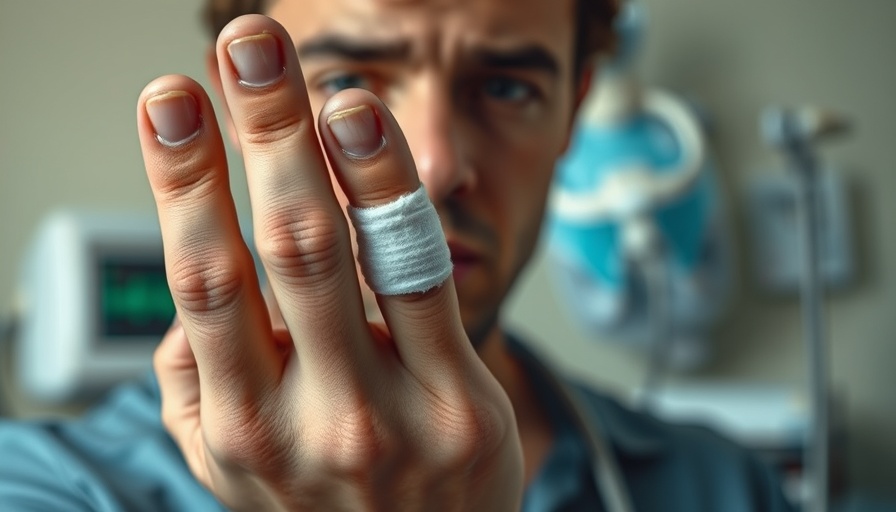
The Hidden Risks of Nail Biting
Nail biting, a habit often considered benign or even harmless, could lead to more serious health concerns than one might think. Many people bite their nails as a way to relieve stress or anxiety, but this seemingly small action can breach the epidermal barrier, inviting a host of pathogens that can cause infections, particularly in the fingernail or toenail region. This condition, known as paronychia, can escalate quickly from what appears to be a minor annoyance to a severe health risk.
In 'Why biting your nails could cause THIS', the discussion dives into the health risks associated with nail biting, prompting a deeper analysis of its consequences.
Understanding Paronychia: An Infection with Consequences
Paronychia occurs when the skin surrounding the nail becomes infected. This infection might begin with redness, swelling, and tenderness, but if left untreated, it can transform into an abscess, resulting in more intense pain and potential complications. In severe cases, individuals may even find themselves needing urgent care for drainage and antibiotics to combat the infection effectively.
Why Some People Bite Their Nails
The psychological aspects of nail biting are as complex as the potential physical hazards. Many individuals turn to this habit during times of anxiety or stress; it can serve as a coping mechanism. However, understanding why we engage in nail biting can help pave the way for healthier alternatives. Recognizing the triggers—whether they are stressors at work, academic pressure, or personal issues—can assist individuals in addressing the root of their habits rather than simply focusing on the act itself.
Exploring Treatment Options
If infection does set in, taking action is crucial. It’s advisable to consult a healthcare provider for appropriate treatment. For those dealing with recurrent nail biting, solutions might include exploring stress management techniques or behavioral therapies that focus on breaking the cycle of the habit. Insights from a podiatrist can also be beneficial, especially for those whose biting has led to serious nail issues or infections.
Preventing Nail Biting: Strategies for Healthier Habits
Implementing strategies to curb nail biting can enhance overall well-being. Keeping nails trimmed and manicured reduces the opportunity for biting and increases the aesthetic motivation to keep nails healthy. Additionally, adopting alternative coping mechanisms such as stress balls, fidget spinners, or even simple breathing exercises can aid in managing anxiety without resorting to nail biting. Ensuring proper foot care, including diabetic foot care and good hygiene practices, can minimize the risks associated with paronychia. Regular check-ups with a podiatrist can assist in maintaining overall foot and nail health.
Conclusion: Take Action for Your Health
As we explore the risks associated with nail biting, it becomes clear that this habit can pose serious health dangers, especially concerning infections like paronychia. Paying attention to our health and understanding the implications of seemingly small habits can lead to significant improvements in our overall well-being. If you or someone you know struggles with nail biting, reach out to a healthcare provider for support and resources to promote healthier habits today.
 Add Row
Add Row  Add
Add 




Write A Comment